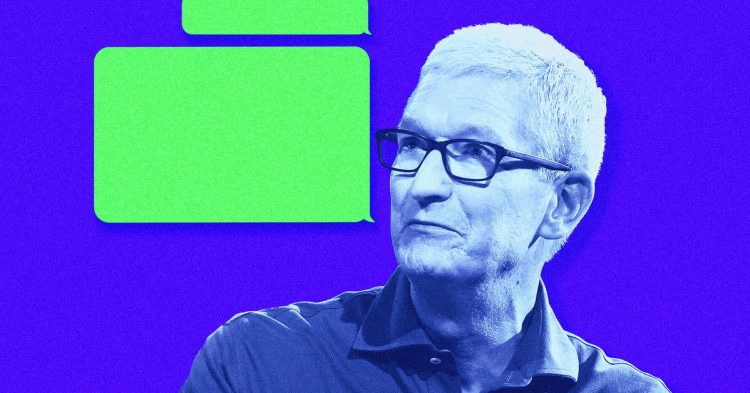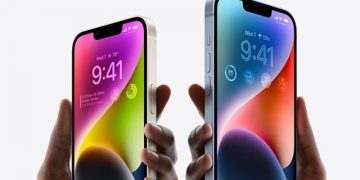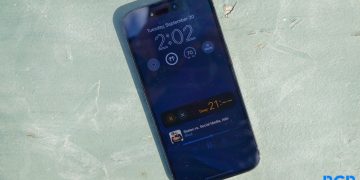Last night, Tim Cook shot down the possibility of solving the green bubble problem — and he revealed the real reason why Apple won’t do it: it doesn’t sell iPhones.
At Vox Media’s Code conference, an attendee told Cook that it was difficult for him to send videos to his mom because Apple devices don’t support RCS, the texting protocol championed by Google and supported by major phone carriers. Cook, in response, suggested the attendee buy his mom an iPhone. “I don’t hear our users asking that we put a lot of energy in on that at this point,” Cook said.
This seems to be the first time Cook has publicly addressed RCS, the Rich Communications Services protocol. RCS is a major improvement over SMS and MMS, letting you do things like send higher-quality photos and videos, and it would fix many of the issues you run into when texting between Apple and Android devices. But Apple has so far refrained from offering support, and the distinction between iMessage’s blue bubbles and regular text message’s green ones has remained a thorn in Google’s side.
Apple has deliberately chosen to make a superior texting experience via iMessage an Apple-only thing — and Cook’s comments on Wednesday speak to that choice. For years, it’s been a key part of Apple’s strategy to lock in users to its platforms. Emails revealed as part of Epic Games v. Apple showed top execs like Craig Federighi (in 2013) and Phil Schiller (in 2016) making the case that bringing iMessage to Android wouldn’t benefit Apple. Eddy Cue testified in a deposition that Apple could have made an Android version of iMessage that was compatible with iOS, but that obviously hasn’t been publicly released.
By making iMessage an Apple-only product — and by continuing to improve it with features like the ability to edit and unsend messages — Apple can make the case that the best way to message your friends is on an Apple device using Apple’s messaging app. While the company could theoretically adopt RCS and keep iMessage on Apple devices, it benefits by creating as much separation as possible between text messaging across Apple and Android. That means more people will buy more iPhones.
Google has been campaigning hard in recent months for Apple to adopt RCS. Google has implemented it in Android, of course, and it’s also now supported by AT&T, T-Mobile, and Verizon (after a very slow rollout). And given that all three have committed to making Google’s Android messaging app the default texting for Android phones they sell, it’s much more likely that people will just text over RCS without thinking about it.
Google SVP Hiroshi Lockheimer has led the charge, joking that there’s a “Really Clear Solution” to messaging struggles and saying that Apple is “holding back” customers who text. The company also recently launched a website, “Get The Message,” to try shaming Apple into adopting RCS.
Lockheimer understands Apple’s resistance to RCS, “but people should be able to send high quality videos and photos to their mom without having to buy her a new phone,” he said. Cook, it seems, disagrees.
Source by www.theverge.com



























